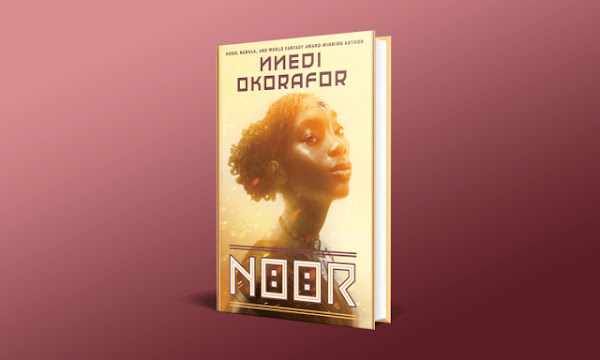Biotechnology, destiny, and humanity clash in the new science fiction novel from Nnedi Okorafor. Alexander Wallace visits the near-future to explore...
As I said in my review of her earlier novella Remote Control, Nnedi Okorafor is the reason why I read as much as I do. I was assigned Binti in a class in college, and then read the whole trilogy. From there, I read some of her other work, and loved all of it. Now, here we shall discuss her most recently published work, Noor, a novella that could very well be used as an exhibit of her strengths.
Okorafor takes a traditional science fiction conceit and places it in a context dramatically different from that which most science fiction writers could dare to imagine: Nigeria in the late twenty-first century. That conceit is the artificially modified human being, and how human such a person really is. Unlike several older works, Okorafor takes the position of ‘yes’ unabashedly; despite the protagonist’s implants, she is fully a human being, no matter how many simple-minded bigots she has to contend with.
This is made all the starker by the fact that her implants are not mere cosmetics paid for exorbitantly by the wealthy; she is disabled because she was hit by a car when she was a child. As in a number of Okorafor’s works, Noor is a meditation on what it means to belong to a group, to a city, to a nation, to a world.
That sense of belonging could just as easily apply to the entirety of Nigeria in the world in which the characters of Noor live. Nigeria has become a fairly prosperous country, not on the level of the United States or the countries of Western Europe, but solidly middle income. This prosperity, however, is at the cost of turning the country into a colony of a massive corporation, Acme-like in its variety of divisions and not unlike the United Fruit Company in terms of its influence. It reminded me of a line from Kim Stanley Robinson’s Mars trilogy (paraphrased): “Colonialism had never died. It just changed names and hired local cops.”
Understandably in that environment, AO, your protagonist, escapes the sprawling cityscape of Abuja and goes into the countryside. There, she meets a number of interesting people, living in fascinating alternatives to a society that’d be reasonably familiar to us. Longtime readers of my work on Warped Factor may well recall that my second Book Talk column was on Cory Doctorow’s Walkaway; I found Noor and Walkaway to be rather similar books in this regard, about how people can reject an oppressive order they are drowned in, and how they can use technology to bring that state of being about.
The technology in Noor, aside from AO’s augmentations, is both invigorating and scary. A point that Okorafor makes throughout her work is that technology is fundamentally amoral, and can be used for both good and ill. You see similar technologies used by both corporations, to oppress and exploit, and the oppressed and exploited, to escape the corporations. The tools both use are wildly original, and occasionally shocking in how prescient they seem to be.
Noor continues Okorafor’s winning streak of thought-provoking, wonderfully written books that ask serious questions about the world we could live in, and where countries not traditionally focused on by science fiction will be affected by it. There’s no better time to join her fan club, for she is a titan in the genre.
Alexander Wallace is an alternate historian, reader, and writer who moderates the Alternate History Online group on Facebook and the Alternate Timelines Forum on Proboards. He writes regularly for the Sea Lion Press blog and for NeverWas magazine, and also appears regularly on the Alternate History Show with Ben Kearns. He is a member of several alternate history fora under the name 'SpanishSpy.'
Post Top Ad
Tags
# Alexander Wallace
# Books
# Print
# Review
Review
Labels:
Alexander Wallace,
Books,
Print,
Review
Subscribe to:
Post Comments (Atom)




























No comments:
Post a Comment